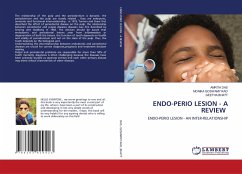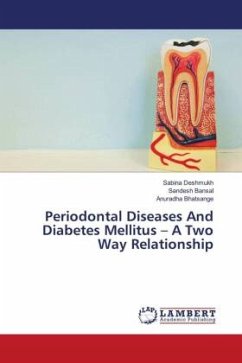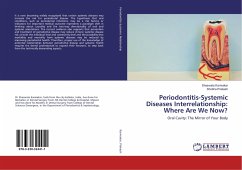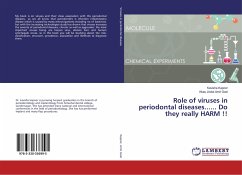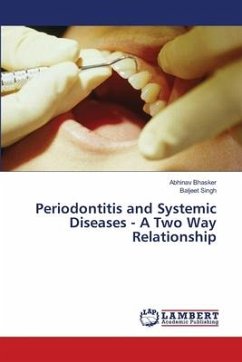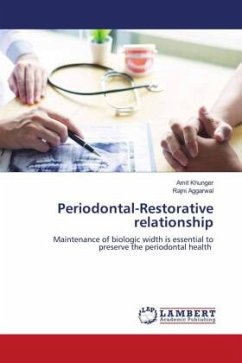
VIruses and periodontal diseases
A Synergy in Pathogenesis
Versandkostenfrei!
Versandfertig in 6-10 Tagen
27,99 €
inkl. MwSt.

PAYBACK Punkte
14 °P sammeln!
Recent microbiological researches on periodontal disease have focused on the possible involvement of human viruses in the etiology and pathogenesis of destructive periodontal diseases.Individual periodontal lesions harbor millions of genomic copies of Human Herpesviruses, Human Cytomegalovirus, Epstein-Barr Virus, Human Papillomavirus, Human Immunodeficiency Virus, Hepatitis B And C Virus. Out of them EBV and CMV are the most commonly researched viruses in periodontology and more than 1 million genome copies have been identified at a single site of infection. The gingival sulcus or periodontal...
Recent microbiological researches on periodontal disease have focused on the possible involvement of human viruses in the etiology and pathogenesis of destructive periodontal diseases.Individual periodontal lesions harbor millions of genomic copies of Human Herpesviruses, Human Cytomegalovirus, Epstein-Barr Virus, Human Papillomavirus, Human Immunodeficiency Virus, Hepatitis B And C Virus. Out of them EBV and CMV are the most commonly researched viruses in periodontology and more than 1 million genome copies have been identified at a single site of infection. The gingival sulcus or periodontal pocket has been proposed to act as a reservoir between periods of recurrence of the herpetic infections. Adherence is required for the establishment of bacterial populations on mucosal surfaces, an important first step in infection and an increased susceptibility to bacterial adherence may support the emergence of pathogens. Viruses can play an important role in this process by pre-conditioning cells for bacterial infections. It may be that periodontitis is the result of extensive and partly opposing immune responses against viral- bacterial combined infections.






